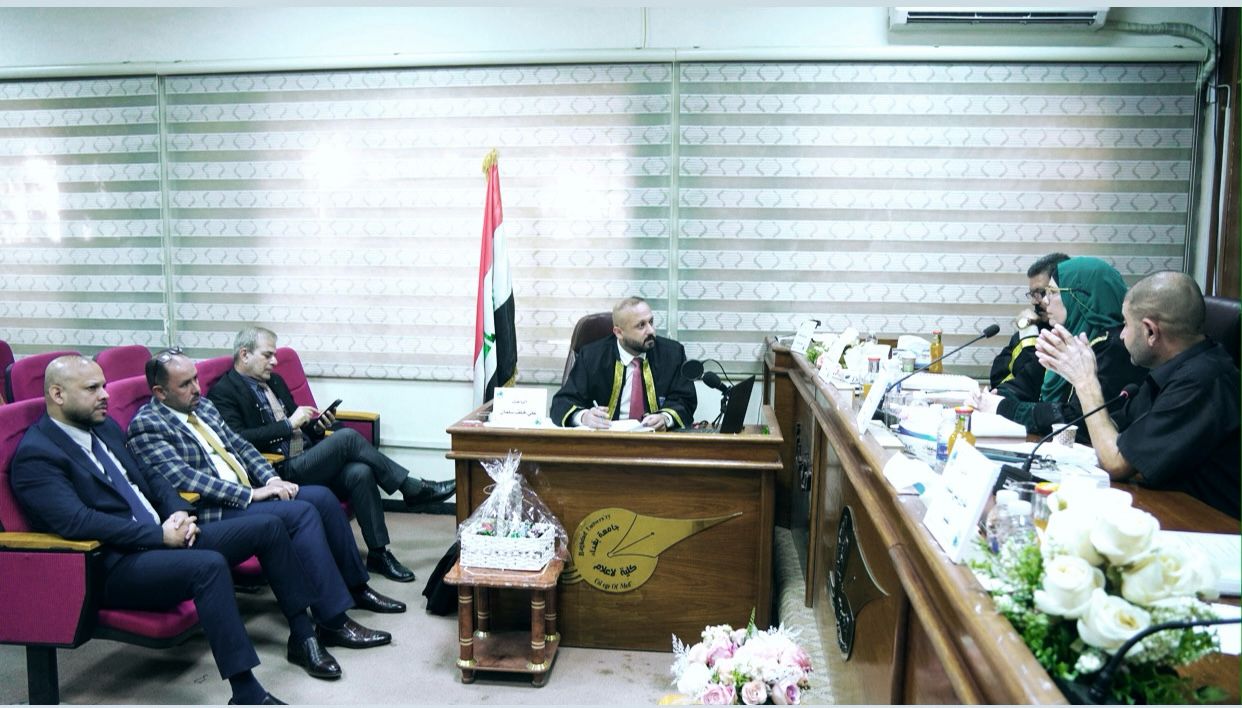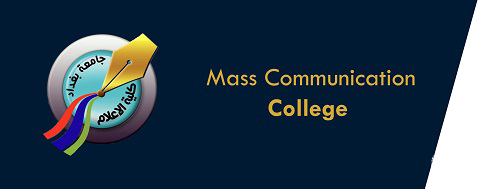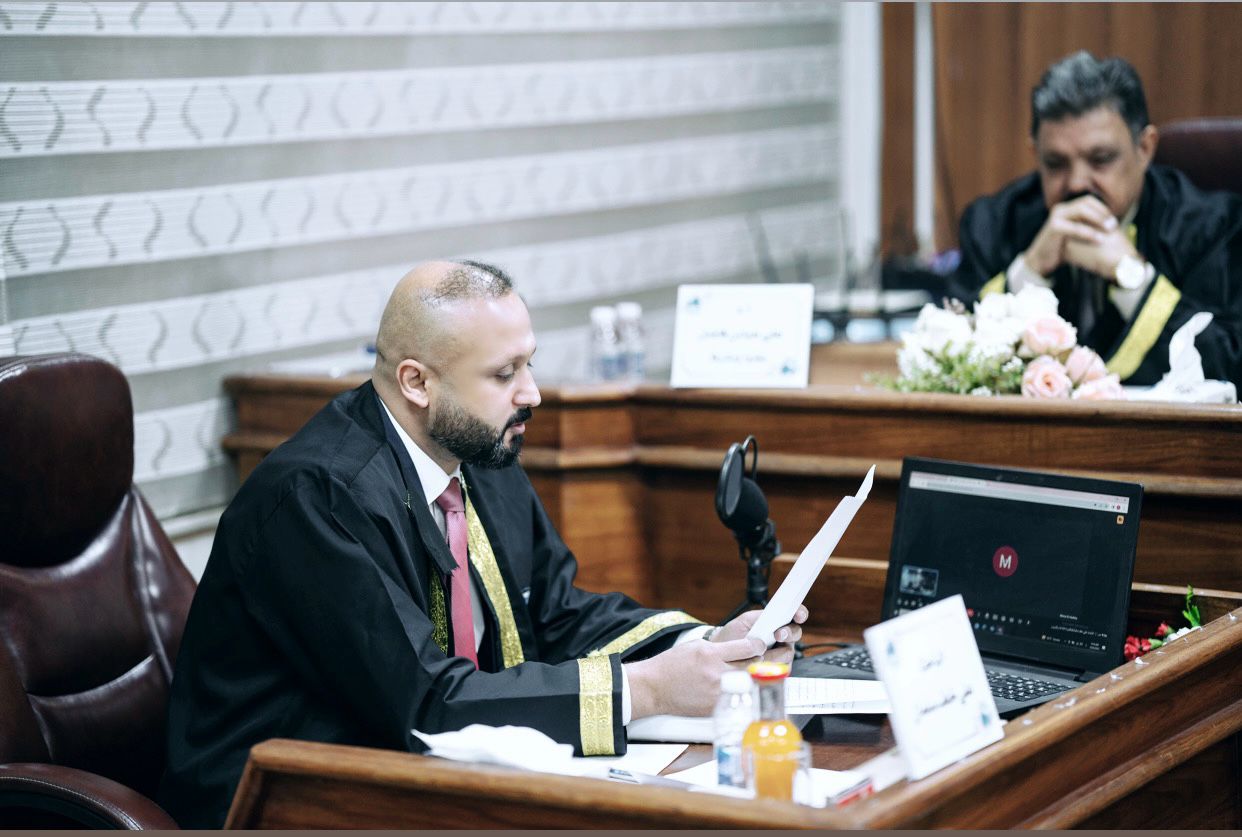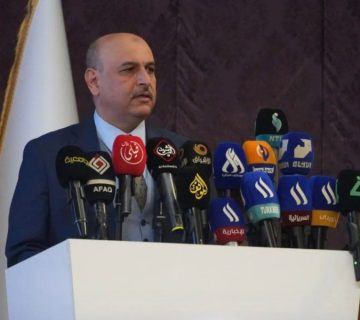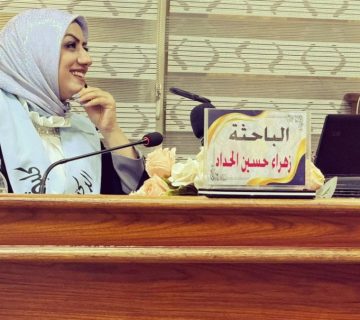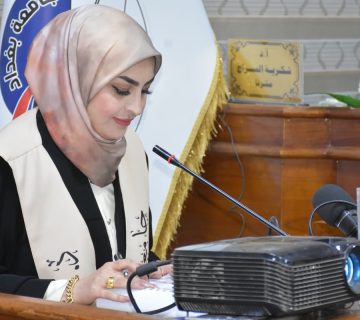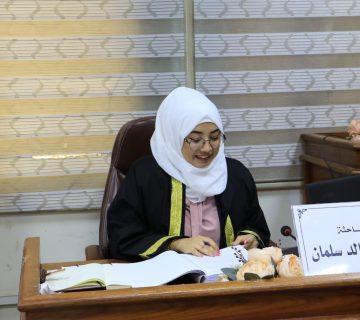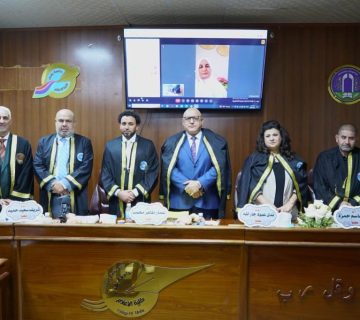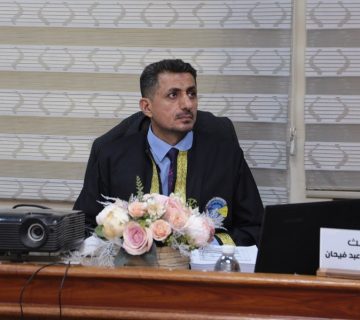A public dissertation defense was held at the College of Media, University of Baghdad, for the doctoral thesis titled “Interactivity on Satellite Television Websites and Its Impact on the Iraqi Public’s Perceptions of the Russian-Ukrainian Conflict,” presented by Ali Khalef Salman, a researcher in the Radio and Television Department.
The dissertation committee was composed of Professor Dr. Raad Jasim as the Chair, Professor Dr. Ali Abbas as the Supervisor, and included Assistant Professor Dr. Birq Hussein, Assistant Professor Dr. Iman Abdul Rahman, and Assistant Professor Dr. Tariq Ali Hamoud. Furthermore, Professor Dr. Mona Mohamed from Cairo University’s Faculty of Media participated as an external committee member.
The first section of the research, the analytical study, aimed to observe the interactivity of electronic sites of satellite television channels and determine their role in covering the Russian-Ukrainian war. This was conducted by applying the analysis to the websites of Al-Sharqiya and Al-Arabiya Al-Hadath, with a focus on their Facebook pages. The field study aimed to understand the impact of demographic factors within the Iraqi society, including age, gender, educational level, social status, and economic status, regarding their reliance on the interactivity of satellite television websites and their social media pages for obtaining information about the Russian-Ukrainian war. The study also sought to identify the methods of interaction employed by the participants with the media and to uncover any hindrances that could potentially impede this interaction.
The research concluded that there were no statistically significant differences in the respondents’ answers based on their demographic variables (gender, income level, age, economic status) concerning their reliance on the interactivity of satellite television websites and their social media pages for obtaining information about the Russian-Ukrainian war.
Furthermore, the research pointed out an agreement between the two study sites regarding the types of topics related to the Russian-Ukrainian war, with military and political topics ranking first and second, at 50.65% and 32%, respectively. Additionally, there was consensus between the sites regarding the users’ method of interaction, with “liking” being the predominant method of interaction, accounting for 91.4%.
The research findings offer insights into the impact of interactivity on media engagement and shed light on the preferences of the Iraqi public when seeking information about the Russian-Ukrainian conflict through satellite television websites and social media platforms.
